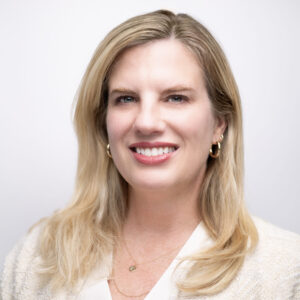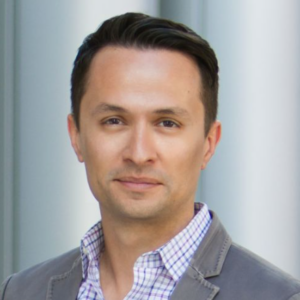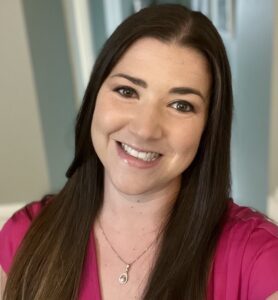LeadingAge Seeks to Train Frontline Staff to Support Residents
LeadingAge Maryland has announced a new two-year project, Scaling What Works. Designed to help maintenance staff and property managers at affordable senior housing communities assume enhanced roles to support resident wellbeing, the project takes a unique approach to providing older Marylanders with the support they need.
How the Project Began

Allison Ciborowski, president and CEO of LeadingAge Maryland
The idea for the project was generated by a group of LeadingAge Maryland member organizations, funders, and stakeholders. “LeadingAge Maryland represents more than 95 affordable senior housing communities across the state,” says Allison Ciborowski, president and CEO of LeadingAge Maryland and project director. “Our Affordable Senior Housing Workgroup spent time prioritizing and discussing issues that affect the availability and accessibility of quality affordable housing, services, and supports for older Marylanders. The need for specialized education for staff in affordable senior housing rose to the top as a shared, high priority need for the group. Through further discussion and working with partner organizations like 2Life and the LeadingAge LTSS Center, we built the proposal that was ultimately funded.”
Funding for the project includes a $190,055 grant from the Enterprise Community Partners’ Thome Aging Well Program, as well as a $100,000 grant from the Harry and Jeanette Weinberg Foundation.
How the Project Will Work
Ciborowski estimates that during the two-year pilot, approximately 28 maintenance staff and 24 property management staff across 16 communities will complete the education program. The project began on September 15, 2023, and will conclude in September 2025.
“From the start, the project team was adamant that training needed to be live and in person on site where staff are working,” she explains. “We are also developing the curriculum in a way that is adult-learner centered, and designed at a level and approach that will be easily digestible for a wide range of learners.”
Maintenance and property management staff will participate in interactive sessions that will cover various topics, including:
- Understanding aging and ageism.
- Recognizing red flags that a resident might need support.
- How to communicate more effectively with team members and residents.
- Practicing active listening.
- Productive approaches to conflict resolution.
- Setting and maintaining healthy boundaries.
- Understanding the staff role in supporting resident wellbeing.
While the curriculum is still being finalized, Ciborowski estimates that it will includes about four, one-hour long interactive sessions. “The education will be provided live, in-person with a skilled facilitator,” she explains. “As part of the grant, we are developing materials and an implementation guide so that the education program could be easily replicated by housing communities across the country.”
The program’s success will be evaluated through focus groups, surveys, and interviews of program participants, service coordinators, and owners/operators of the housing communities. That evaluation will evaluate the program’s impact across the different housing communities, collect feedback on the training and implementation processes, identify barriers to success, and review factors like resident complaints, staff turnover rates, and resident satisfaction.
Hopes for Program Outcomes
This training program takes a unique approach to providing resident care, and it’s focusing on staff who aren’t traditionally regarded for their caregiving capabilities. This, however, could be key to the program’s success, and is part of what’s so intriguing about the approach.
“The ultimate goal of this project is that property management and maintenance staff will have an enhanced role to better support the residents in their communities, and work with the service coordinator to identify and report any challenges or safety concerns,” says Ciborowski. “These staff are the eyes and ears of their communities. Training these staff to identify and observe any behavioral and physical health and safety concerns and sharing their insights and knowledge will strengthen the team to work with the service coordinator and possibly intervene with support and resources earlier than relying only on the service coordinator.”
With the healthcare industry facing a staffing crisis, the project is well-timed. If successful, it could have meaningful effects on staff and residents, alike. “We hypothesize that older adults in these communities will report more meaningful engagement with property staff, more timely responses to their needs, and increased satisfaction with the community overall,” Ciborowski notes. “We also think that referrals to the service coordinator will be made earlier and more frequently, which could support residents in more readily accessing needed supports and services.”
She explains that the project may also be rewarding for staff. “The project may help staff improve how they view their job, satisfaction with their job, communication with other staff and residents, and relationships with their team and residents,” Ciborowski says.
Upon completion of the project, more than 2,000 affordable senior housing communities that are members of LeadingAge will receive the training modules and implementation guide to support the continued application of the project and its learnings. This innovative approach could help support and transform the affordable senior housing industry, and hopefully its impacts will be wide-reaching.

Paige Cerulli is a contributing writer to i Advance Senior Care.
Related Articles
Topics: Facility management , Featured Articles , Housing , Leadership , Operations , Staffing , Training











